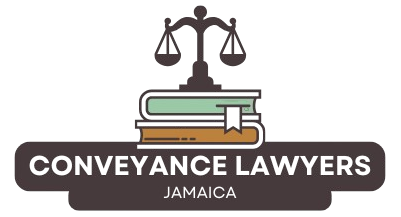Jamaica’s vibrant culture, breathtaking scenery, and year-round sunshine make it a prime spot for real estate investment. The island’s magnetic appeal draws investors and dreamers from across the globe.
If you’re a non-resident, you can still own your slice of this Caribbean haven. The path to ownership is clear, secure, and surprisingly straightforward when you know the steps.
This guide will take you through every legal step—from initial contract review to final land registration—so your property transfer goes off without a hitch. Consider this your roadmap to a successful purchase.

Pre-Purchase Requirements for Non-Residents
Before you start touring villas and beachfront plots, there are a couple of essential steps to tick off. Think of these as the foundational moves that ensure the rest of your journey is smooth.
These early moves will save you time, money, and stress down the line. Getting them right from the start puts you in control of the entire process.
Legal Eligibility and Property Types
Good news: Jamaica welcomes non-residents into the property market with open arms. There are no special restrictions or permissions needed just because you’re a foreign buyer.
Whether you fancy a chic villa in a gated community, an apartment block for rental income, or some vacant land to build your dream home, the same rules apply to you as they do to locals. The market offers a wide range of options to suit every investment strategy.
Spending a little time getting to grips with Jamaican real estate law will help you understand ownership rights, zoning restrictions, and any nuances that could affect your investment. Knowing these details upfront prevents costly misunderstandings later.
Appointing a Local Power of Attorney
Since you won’t always be on the island, it’s wise to appoint a local power of attorney—usually your conveyancing lawyer. This is a practical and powerful tool for any overseas buyer.
With this document, your attorney can sign contracts, submit forms, and liaise with the land registry on your behalf, keeping your purchase moving forward even when you’re thousands of miles away. They become your trusted representative on the ground.
A certified notary public will prepare and notarise the power of attorney so it’s valid in Jamaica. This ensures the document is legally watertight and recognized by all government agencies.

Conveyancing Process and Due Diligence
Conveyancing is the legal process of transferring ownership from the seller to you. It’s the formal, administrative heart of the transaction.
Non-residents follow a specific set of procedures to ensure they can legally transfer property ownership without complications.
Doing your homework at each stage protects you from surprises after you’ve paid your deposit. This due diligence phase is your insurance against hidden problems and ensures you know exactly what you’re buying.
Engaging a Conveyancing Lawyer
Your first move should be hiring a reputable conveyancing lawyer in Jamaica. This is the single most important decision you’ll make. Your lawyer acts as your project manager, legal shield, and guide.
They’ll handle everything from the initial contract review to lodging the final paperwork at the National Land Agency. A great lawyer goes beyond the basics, anticipating potential roadblocks and ensuring every clause in the sale agreement protects your interests. They also make sure all closing costs are transparent and clearly outlined from day one.
Conducting a Thorough Title Search
Next, your lawyer will perform a comprehensive title search at the National Land Agency. This is a non-negotiable step to verify the property’s legal status.
This investigation confirms that the seller has a clear deed and the undisputed right to sell. More importantly, it uncovers any hidden liens, outstanding mortgages, legal claims, or other encumbrances that could jeopardise your ownership. A clean title search is the bedrock of a secure property transfer and gives you the confidence to proceed.
Utilising Escrow Services
To keep your funds safe, most buyers use escrow services. This acts as a neutral “safe box” for the money involved in the transaction.
An independent third party—often a bank or reputable attorney—holds your deposit and final payment until all sale conditions are satisfied. Funds are only released once milestones are met, such as a successful title search and the signing of transfer documents. This arrangement provides total peace of mind for both you and the seller.
Finalising Your Purchase
With due diligence done and your financing secured, you’re ready for the finishing line. This is where your dream starts to become a reality.
These final steps will make you the proud owner of Jamaican real estate, turning paperwork and payments into a tangible asset.
Registering with the National Land Agency
Once you’ve signed the sale and purchase agreement and the funds are in place, your lawyer will submit the transfer documents for land registration. This is the official act that makes the property legally yours.
The National Land Agency is Jamaica’s official land registry, maintaining public records of every property transfer on the island. Once your name is entered into their records, your ownership is officially recognized by the Jamaican government.
Calculating Stamp Duty, Transfer Taxes & Closing Costs
Beyond the purchase price, you need to budget for closing costs. There are no hidden fees, but you need to account for them in your budget.
These include stamp duty (a government tax on the sale price, split between buyer and seller), transfer tax (paid by the seller based on market value), registration fees for the land registry, and your lawyer’s fees for their expert services like contract review and document processing. Your attorney will provide a full, itemised breakdown so you know exactly what to expect.
Receiving Your Certificate of Title
After the land registry completes its process, you’ll receive a new Certificate of Title in your name. This is the ultimate prize at the end of your purchasing journey.
This document is your legal proof of ownership—the official deed that confirms the property is yours, free and clear. Congratulations, you’re now officially a Jamaican property owner!
